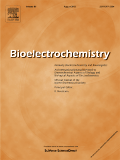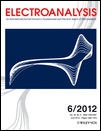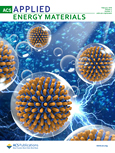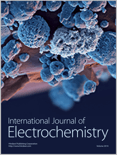
Electrochemical Science Advances
Scope & Guideline
Empowering Scientists through Open Access Insights
Introduction
Aims and Scopes
- Electrocatalysis and Energy Conversion:
The journal publishes research on electrocatalytic processes, including hydrogen evolution, oxygen reduction, and CO2 reduction, highlighting the development of new catalysts and mechanisms for energy conversion. - Electrochemical Sensors and Biosensors:
A significant area of focus includes the design and application of electrochemical sensors for detecting biological and chemical substances, employing nanomaterials and innovative transducer technologies. - Advanced Electrochemical Materials:
Research on novel materials for batteries, supercapacitors, and fuel cells is prominent, detailing advancements in electrode materials, electrolyte formulations, and composite structures. - Interfacial Electrochemistry:
Studies on the interactions at the electrode/electrolyte interface, including solid-liquid interfaces and the role of surface modifications, are central to understanding and improving electrochemical performance. - Theoretical and Computational Electrochemistry:
The journal encourages contributions that utilize computational models and simulations to predict electrochemical behaviors, assisting in the rational design of new materials and processes. - Historical Contributions to Electrochemistry:
In addition to contemporary research, the journal also acknowledges historical figures and their contributions to the field of electrochemistry, providing context and appreciation of the discipline's evolution.
Trending and Emerging
- Sustainable Energy Solutions:
There is a significant increase in research focused on sustainable energy technologies, particularly in electrochemical CO2 reduction and hydrogen production, aligning with global efforts to combat climate change. - Integration of AI and Machine Learning:
The application of artificial intelligence and machine learning techniques to optimize electrochemical processes and materials is an emerging trend, showcasing the integration of computational methods with experimental research. - Nanostructured and Hybrid Materials:
Research on nanostructured materials and hybrid composites is on the rise, emphasizing their enhanced properties and functionalities for electrochemical applications in batteries, supercapacitors, and sensors. - Electrochemical Wastewater Treatment:
There is a growing interest in the use of electrochemical methods for wastewater treatment and pollutant removal, reflecting a shift towards environmentally friendly technologies. - Bioelectrochemistry and Biocatalysis:
The field of bioelectrochemistry, including the use of enzymes and microorganisms in electrochemical systems, is gaining momentum, highlighting the potential for sustainable processes in energy and sensing applications.
Declining or Waning
- Traditional Electrochemical Analysis Methods:
There is a noticeable decline in papers focusing on traditional electrochemical techniques such as polarography and simple voltammetry, as researchers increasingly explore more sophisticated methods and technologies. - Basic Electrochemical Theory:
Research that primarily focuses on fundamental electrochemical theory without application-oriented insights seems to be waning, as the field moves towards more applied and interdisciplinary approaches. - Conventional Materials for Energy Storage:
The exploration of conventional materials for batteries and supercapacitors, such as basic carbon and metal oxides, is less frequent, with a shift towards innovative materials, including nanomaterials and composites. - Static Electrochemical Systems:
Research on static electrochemical systems is decreasing, with a growing emphasis on dynamic systems, operando studies, and real-time analysis of electrochemical processes.
Similar Journals

BIOELECTROCHEMISTRY
Advancing the Frontiers of Bioelectrochemical ResearchBIOELECTROCHEMISTRY, published by Elsevier Science SA, is a leading academic journal that focuses on cutting-edge research in the fields of biophysics, electrochemistry, and miscellaneous medicine with a commendable impact factor reflecting its significance in the scientific community. Established in 2000 and continuing until 2025, the journal resides in the Netherlands and has been ranked in the Q2 category across various relevant disciplines, such as Biochemistry, Genetics and Molecular Biology, and Physical and Theoretical Chemistry, showcasing its quality and relevance. With a Scopus ranking that places it among the top journals in its categories—including an impressive 12th rank in Electrochemistry—BIOELECTROCHEMISTRY serves as a critical platform for researchers and professionals seeking to disseminate and engage with innovative findings. While the journal does not offer Open Access options, its reputation and reach make it an essential reference point for anyone involved in bioelectrochemical studies. The journal’s commitment to advancing knowledge in electrochemical applications in biological systems ensures its esteemed position in academia.

Portugaliae Electrochimica Acta
Empowering Researchers in the Electrochemical LandscapePortugaliae Electrochimica Acta is a distinguished journal dedicated to the field of electrochemistry, published by the SOCIEDADE PORTUGUESA ELECTROQUIMICA. With a notable ISSN of 0872-1904, this journal serves as a vital resource for researchers, professionals, and students interested in advancing their understanding of electrochemical processes. Though it is currently categorized in Q4 in the 2023 Electrochemistry rankings, the journal contributes significantly to the academic discourse from its base in Coimbra, Portugal. The journal's timeline spans actively from 2008 to 2025, ensuring a sustained engagement with emerging research. While the journal does not offer open access options, it remains an authoritative source noted for promoting innovative electrochemical research and fostering academic connections within the discipline. Researchers are encouraged to submit their findings and explore the latest contributions to this expanding field.

Electrocatalysis
Advancing the Frontiers of Electrochemistry.Electrocatalysis, published by SPRINGER, is a leading journal dedicated to advancing the field of electrochemistry, providing a comprehensive platform for the dissemination of cutting-edge research and innovative methodologies from 2010 to 2024. With an ISSN of 1868-2529 and an E-ISSN of 1868-5994, this journal has established a reputable presence, ranking in the Q3 category of the electrochemistry segment as of 2023 and positioning itself within the 29th out of 60 in the Scopus classification. The journal welcomes submissions that explore a wide array of topics involving electrocatalysts, their applications, mechanisms, and advancements, aiming to catalyze the understanding of electrochemical systems and foster interdisciplinary collaborations. Although the journal is not openly accessible, it remains a vital resource for researchers, professionals, and students seeking to stay abreast of the latest findings and theoretical developments in this dynamic field.

JOURNAL OF SOLID STATE ELECTROCHEMISTRY
Connecting Theory and Practice in ElectrochemistryThe Journal of Solid State Electrochemistry is a leading peer-reviewed journal dedicated to advancing the understanding and application of solid-state electrochemical systems. Published by Springer, this prestigious journal has been a staple in the field since its establishment in 1997, with an impressive range of topics covering Condensed Matter Physics, Electrochemistry, and Materials Science. It holds a notable Q2 category quartile ranking in several disciplines, including Electrical and Electronic Engineering, and boasts significant Scopus rankings—ranked #28 in Electrochemistry, showcasing its credibility and impact in the field. With a mission to disseminate high-quality research and innovative methodologies, the journal aims to foster cross-disciplinary collaboration among researchers, professionals, and students. While not open access, articles published in the Journal of Solid State Electrochemistry are integral for those exploring cutting-edge technologies through theoretical and practical approaches, ultimately enhancing our understanding of energy systems and materials' performance. Located in Germany, the journal continues to thrive internationally, providing a robust platform for scholarly communication.

SURFACE ENGINEERING AND APPLIED ELECTROCHEMISTRY
Exploring Innovations in Surface Engineering and ElectrochemistrySURFACE ENGINEERING AND APPLIED ELECTROCHEMISTRY, published by PLEIADES PUBLISHING INC, stands as a pivotal resource in the realms of engineering and materials science. With an ISSN of 1068-3755 and an E-ISSN of 1934-8002, this journal encompasses an extensive scope that includes industrial applications, and innovative surface treatments, fostering advancements in the fields of Industrial and Manufacturing Engineering, Surfaces, Coatings and Films, and Surfaces and Interfaces. Recognized for its contributions, it currently holds a Q3 classification in both Industrial and Manufacturing Engineering and Surfaces, Coatings and Films, alongside a Q4 ranking in Surfaces and Interfaces for the year 2023. Despite its competitive standings, the journal encourages inclusive dialogue and dissemination of research from a global community—making it an essential platform for researchers and professionals dedicated to surface technologies and applied electrochemistry. Potential contributors and readers can expect a comprehensive exploration of techniques and innovations, reinforcing the journal's commitment to bridging theory and practical application in these dynamic fields.

JOURNAL OF THE ELECTROCHEMICAL SOCIETY
Driving Theoretical and Experimental Breakthroughs in ElectrochemistryJOURNAL OF THE ELECTROCHEMICAL SOCIETY, published by the ELECTROCHEMICAL SOCIETY INC, is a leading peer-reviewed academic journal dedicated to advancing the field of electrochemistry and its myriad applications. With an ISSN of 0013-4651 and E-ISSN of 1945-7111, this esteemed journal has been a pivotal platform for research since its inception in 1948, with convergence periods allowing for a rich historical context of study through to 2024. Recognized for its high impact, it holds a noteworthy Q1 ranking in several categories including Condensed Matter Physics and Materials Chemistry, and it is Q2 ranked in both Electrochemistry and Renewable Energy. This journal features a range of articles that encompass both theoretical and experimental advancements, making it a crucial resource for researchers, professionals, and students keen on exploring cutting-edge developments in materials science, energy solutions, and sustainable technologies. Although it is not an open access journal, its rigorous standards ensure that published work significantly contributes to the body of knowledge within its fields, fostering innovative research and collaborative progress.

ELECTROANALYSIS
Illuminating the Path of Modern Electrochemical MethodsELECTROANALYSIS is a premier journal published by WILEY-V C H VERLAG GMBH that serves the dynamic field of analytical and electrochemistry. Established in 1989, this scholarly publication has successfully converged its focus to cover a wide array of topics including novel electrochemical methods, sensor technology, and environmental analysis, reflecting the latest advancements and trends in the field. With an impressive 2023 impact factor that places it in the Q2 quartile of Analytical Chemistry and Q3 quartile in Electrochemistry, the journal is recognized for its high-quality research and contributions. Its Scopus rankings further reinforce its credibility, standing at #46/156 in Analytical Chemistry and #26/60 in Electrochemistry. Although currently not offering Open Access, the journal remains a significant resource for researchers, professionals, and students keen to stay at the forefront of electroanalytical techniques. With a global readership, ELECTROANALYSIS continues to drive knowledge and innovation within the scientific community.

Advanced Science
Disseminating Groundbreaking Insights in ScienceAdvanced Science, published by Wiley, stands as a premier open-access journal since 2014, dedicated to fostering innovative research and insights across multiple disciplines including Biochemistry, Genetics and Molecular Biology, Chemical Engineering, Engineering, Materials Science, Medicine, and Physics and Astronomy. Based in Germany, this journal has quickly established itself in the academic community, receiving high recognition with a Q1 ranking in its respective categories as of 2023. With its impressive Scopus rankings, including #1 in Biochemistry, Genetics and Molecular Biology and #3 in General Engineering, Advanced Science plays a pivotal role in disseminating groundbreaking scientific knowledge to researchers, professionals, and students alike. By embracing an open access model, it ensures that high-quality research is readily available to a global audience, thus facilitating advancements in science and engineering fields.

ACS Applied Energy Materials
Pioneering Research for a Sustainable Energy TomorrowACS Applied Energy Materials, published by the American Chemical Society, is a premier journal dedicated to the cutting-edge fields of energy materials, chemical engineering, and electrochemistry. With an impressive impact factor and consistently ranked in the Q1 category across multiple disciplines—including Chemical Engineering, Electrical and Electronic Engineering, and Materials Chemistry—this journal serves as a pivotal platform for researchers and professionals focused on innovative solutions for energy systems and materials science. Since its inception in 2018, ACS Applied Energy Materials has been committed to disseminating high-quality research that addresses pressing energy challenges, promoting sustainability and efficiency in various applications. Its competitive Scopus rankings reflect the journal's influence and relevance within the academic community, making it an essential resource for anyone looking to stay at the forefront of energy materials research.

International Journal of Electrochemistry
Connecting researchers and professionals in the electrochemical landscape.The International Journal of Electrochemistry, published by HINDAWI LTD, serves as a premier outlet for cutting-edge research in the expansive field of electrochemistry. With an ISSN of 2090-3529 and an E-ISSN of 2090-3537, this open-access journal has been contributing to the advancement of scientific knowledge since 2011, making its content freely available to researchers, industry professionals, and students around the globe. The journal aims to foster innovation by disseminating high-quality research articles, reviews, and technical notes that encompass a wide range of topics from fundamental electrochemical principles to practical applications in energy storage, sensors, and material development. With a focus on promoting interdisciplinary collaboration and advancing the understanding of electrochemical systems, the International Journal of Electrochemistry is a vital resource for anyone involved in electrochemical research and its applications.